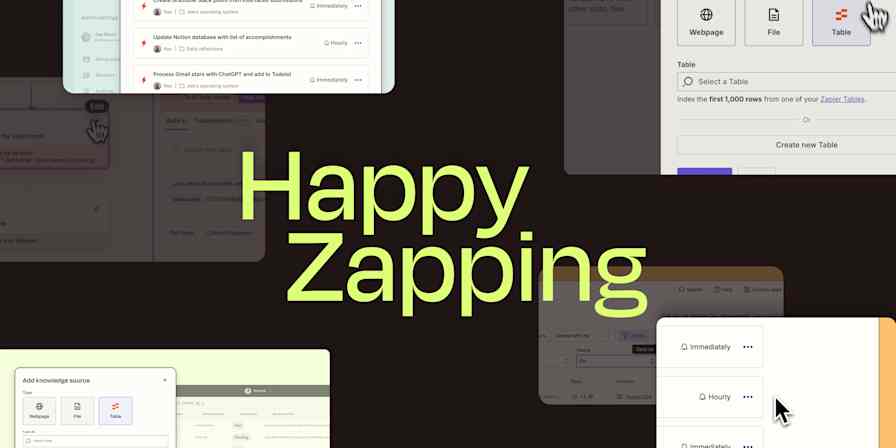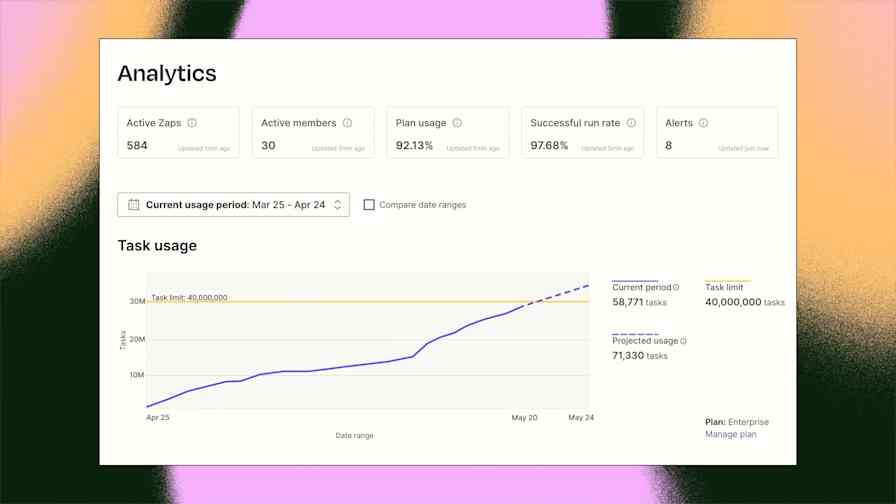Second in a 4 part series about the birth of Zapier at Startup Weekend - Columbia. This post covers the pitch, building a team, and first night. Part One about the idea can be found here.
Friday night is easily the most important night of Startup Weekend. What you achieve on Friday night sets the tone for the whole weekend. If you start out on fire, the rest of the weekend will go great. If you start slow, you'll be playing catch up the rest of the weekend.
How do you make sure Friday night goes great? Nail the pitch, form a killer team, take care of the essentials, and go off to the races.
Nailing the Pitch
How do you nail the pitch?
Spend as much time exploring the idea before the event as possible. Talk to developers about how the idea will be built, talk potential customers to see if your idea solves a real pain point. The whole purpose of this exercise is to make sure you have a solid idea and don't need to spend much if any time pivoting your idea during the weekend.
Aside: This assumes your goal is to take your idea to the next level and make a real business. If you're just at Startup Weekend to have fun and learn it's alright to come in less prepared.
Bryan and I (Wade) had dozens of 10-15 minute chats about Zapier before the weekend. We also each spent time in forums validating the problem exists.
With that level of preparation it was pretty easy to make sure Zapier got enough votes to form a team for the weekend even if the initial pitch wasn't super polished.
Forming a Killer Team
The single most important thing you need for the weekend is a killer team.
What makes a killer team? Lot's of technical skill matched with laser-like focus on the customer.
You'll notice marketing is missing here. Marketing is important for any startup - just not for the weekend. More important is having a strong focus on the problem your trying to solve and the customer you're solving it for. If you're interested in finding out why - leave a comment and I'll write a post later going into more detail about this.
The Zapier team was the perfect mix. Bryan nailed the back-end, Mike smoked the front-end, Dan was the jack-of-all-trades, and I built both splash pages.
And to top it off, all of us cared more about the customer and the problem we were trying to solve than any of the code we were writing.
Take Care of the Essentials
Once your team is formed it's time to get down to business. But before you get too far you need to take care of the essentials.
What are the essentials?
Make sure everyone on the team understands what their role is for the weekend.
Rehash the problem and proposed solution. If everyone gels with this you'll be able to build you're product during the weekend rather than spend time talking about an idea.
Come up with a name and make sure the corresponding domain and social media accounts are available.
These three things should take no more than an hour. If you find it taking too long - stop. Find a mentor. Get some outside help. Do anything you have to do to make sure the three bullet points are resolved.
For Zapier, Bryan and I were on the same page because we talked so much about the idea before the weekend. Plus, before Dan and Mike even joined the team we talked a ton and knew they were on the same page too.
By the time we started working all we needed was a name. Now usually, naming is ridiculously hard, but we lucked out. Zapier was the first name we thought of and we liked it well enough so we ran with it.
After that it's time to get to work.
Off to the Races
How do you start the work?
Ideally, your least technical person can buy the domain and go straight to KickoffLabs.com and set up a splash page to start collecting emails. Kickoff Labs is seriously the easiest way to get a landing page up in minutes. Being able to collect emails is going to pay dividends throughout the weekend. This person should also set up any relevant social media accounts - Twitter, Facebook, etc.
The rest of the (more technically inclined) team should be tackling the demo. The most important question is what is Minimal Viable Product or MVP you need to be able to demonstrate for the demo on Sunday.
If your idea required crazy technical work, the demo can be faked, but the most important part is anyone working on the core product has a clear plan of attack.
With Zapier, I was able to have the domain and Kickoff Labs page set up in roughly thirty minutes and a twitter account in five all while Bryan, Mike, and Dan were deciding what technical limitations needed to be tackled by Sunday.
Once you get to this point, any more work you can do on Friday night is all gravy.
We got through this stuff more quickly than I expected and were able to put in three or four more hours before we crashed for the evening (if you aren't able to put additional work in, don't worry. If you have a solid plan for your MVP you should be in good shape for Saturday).
Next up: Find out how to blast through Saturday - the longest day of your life - and set your team up for a strong finish on Sunday.









